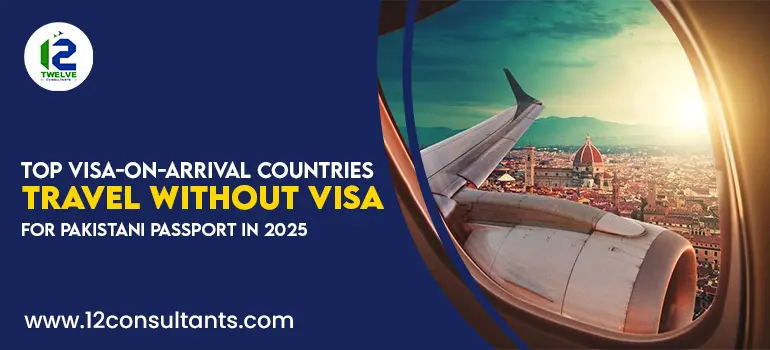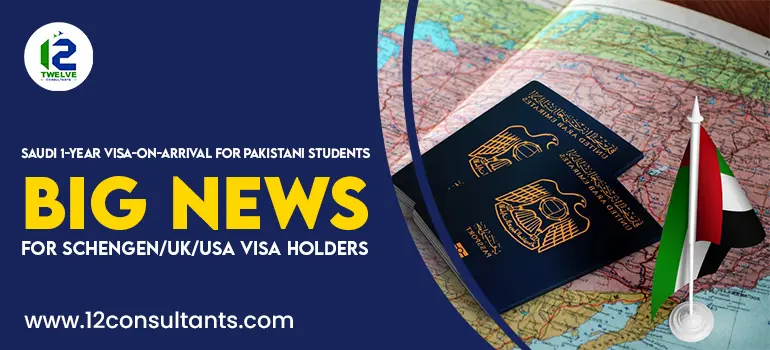

Study Medicine in Romania for Ghanian Students
Are you a Ghanaian student with a passion for medicine? Look no further than Romania for an exceptional opportunity to pursue your dreams! Romania has emerged as a popular destination for international students seeking high-quality medical education. In this blog, we will explore why studying medicine in Romania is a fantastic choice for Ghanian students. From world-class universities to affordable tuition fees, Romania offers a conducive environment for academic excellence. Join us as we delve into the enriching cultural experience, renowned faculty, and extensive clinical exposure that awaits you in Romania. Get ready to embark on an incredible journey towards a successful medical career!
Why Ghanian Student should peruse thier Medical Eucation in Romania
If you’re a Ghanaian student considering a career in medicine, Romania offers compelling reasons to pursue your medical education there. Firstly, Romanian universities are renowned for their exceptional medical programs and have a long-standing tradition of excellence in healthcare education. Secondly, the cost of studying medicine in Romania is comparatively affordable, with lower tuition fees and living expenses, easing the financial burden on Ghanaian students. Additionally, Romania provides a multicultural environment that fosters inclusivity and promotes intercultural exchange, enabling you to broaden your horizons. Lastly, the extensive clinical exposure and practical training offered by Romanian universities ensure that you receive a comprehensive and hands-on medical education. Embark on your journey to becoming a skilled healthcare professional by choosing Romania as your educational destination.
Fee Structure in Romania for Ghanian Medical Students
|
University |
Tuition Fees (per year in USD) |
Application Fee (one-time) |
|
University of Bucharest |
$6,000 |
$150 |
|
Carol Davila University |
$5,500 |
$100 |
|
University of Medicine and Pharmacy, Cluj-Napoca |
$5,800 |
$120 |
|
Iuliu Hațieganu University of Medicine and Pharmacy, Cluj-Napoca |
$6,200 |
$150 |
|
Grigore T. Popa University of Medicine and Pharmacy, Iași |
$5,600 |
$100 |
|
Victor Babeș University of Medicine and Pharmacy, Timișoara |
$5,400 |
$120 |
Top 10 Medical Universities in Romania for Ghanian Students
- University of Medicine and Pharmacy “Carol Davila” Bucharest: One of the oldest and most prestigious medical universities in Romania, offering a wide range of medical programs and renowned for its research opportunities.
- Iuliu Hațieganu University of Medicine and Pharmacy, Cluj-Napoca: Known for its modern facilities and innovative teaching methods, this university provides a vibrant learning environment and emphasizes practical skills through clinical training.
- University of Medicine and Pharmacy, Târgu Mureș: With a focus on multidisciplinary medical education and research, this university offers a diverse range of medical specialties and is known for its strong international collaborations.
- Grigore T. Popa University of Medicine and Pharmacy, Iași: Recognized for its rigorous academic standards and comprehensive curriculum, this university provides extensive clinical exposure and fosters a supportive learning environment.
- Victor Babeș University of Medicine and Pharmacy, Timișoara: Offering modern facilities and a student-centered approach, this university emphasizes research, innovation, and practical training to prepare students for successful medical careers.
- Ovidius University of Constanta, Faculty of Medicine: Situated by the Black Sea, this university provides a unique learning experience and focuses on interdisciplinary collaboration, preparing students for diverse medical challenges.
- University of Medicine, Pharmacy, Sciences, and Technology of Târgu Mureș: This university offers an integrated approach to medical education, combining theoretical knowledge with practical skills, and is known for its international student community.
- Vasile Goldiș Western University of Arad, Faculty of Medicine: With a commitment to high-quality education and modern facilities, this university provides an interactive learning environment and fosters critical thinking among its students.
- University of Oradea, Faculty of Medicine and Pharmacy: This university focuses on a multidisciplinary approach to medical education, offering diverse programs and opportunities for research and clinical practice.
- University of Medicine, Pharmacy, Sciences, and Technology of Craiova: Known for its dedicated faculty and comprehensive medical programs, this university emphasizes practical training and research to ensure a well-rounded education.
Eligibility Criteria to Study Medicine in Romania for Ghanaian Students
The eligibility criteria for Ghanaian students to study medicine in Romania may vary slightly across universities. However, here are the general requirements:
- Academic Qualifications: Students should have completed their secondary education with a recognized certificate, such as the West African Senior School Certificate Examination (WASSCE) or General Certificate of Education (GCE) Advanced Level.
- Science Background: Students should have a strong background in science subjects, including Biology, Chemistry, and Physics, as these are essential for medical studies.
- Language Proficiency: Proficiency in the English language is crucial. Some universities may require students to provide proof of English language proficiency through standardized tests such as TOEFL or IELTS. However, many universities in Romania offer medical programs taught in English, which may not require additional language tests.
- Entrance Exams: Some universities may require students to take entrance exams, such as a biology or chemistry exam, to assess their knowledge and suitability for the medical program.
- Application Process: Ghanaian students need to submit their application directly to the chosen university, including all necessary documents such as academic transcripts, identification documents, and a completed application form.
Required Documents to Study Medicine in Romania for Ghanaian Students
- High School Diploma: A copy of your high school diploma or equivalent qualification, such as the West African Senior School Certificate Examination (WASSCE) or General Certificate of Education (GCE) Advanced Level.
- Academic Transcripts: Official transcripts or records of your academic achievements in secondary education, including grades and subjects studied.
- Language Proficiency Proof: Depending on the university and program, you may need to provide proof of English language proficiency through standardized tests like TOEFL or IELTS. Alternatively, if the program is taught in Romanian, you might be required to demonstrate proficiency in the Romanian language.
- Passport or Identification: A valid passport or identification document that verifies your identity and nationality.
- Passport-sized Photographs: Recent passport-sized photographs meeting the specified requirements of the university.
- Application Form: A completed application form provided by the university, which includes personal information and your chosen medical program.
- Application Fee: Payment of the application fee, as required by the university.
Living Cost in Romania for Ghanaian students
The cost of living in Romania for Ghanaian students can vary depending on factors such as location, lifestyle choices, and personal preferences. Here is a general overview of the living costs in Romania:
- Accommodation: The cost of accommodation in Romania will depend on whether you choose to live in a university dormitory, rent a private apartment, or share accommodation with other students. On average, monthly accommodation expenses can range from $200 to $500, depending on the city and type of accommodation.
- Food: Grocery expenses in Romania are generally affordable. Students can expect to spend around $150 to $250 per month on food, including meals cooked at home and occasional dining out.
- Transportation: Public transportation in Romania is reasonably priced, with monthly student passes ranging from $15 to $40, depending on the city. Many students prefer walking or cycling within university towns, which can significantly reduce transportation costs.
- Utilities: Utilities such as electricity, water, heating, and internet can amount to approximately $70 to $120 per month, depending on the size of the accommodation and consumption.
- Health Insurance: It is essential to have health insurance coverage while studying in Romania. The cost of health insurance can vary, but it typically ranges from $100 to $200 per year, depending on the coverage provided.
- Miscellaneous Expenses: Additional expenses such as textbooks, study materials, personal hygiene products, and entertainment can amount to approximately $100 to $200 per month.
Advantages of Studying Medicine in Romania for Ghanaian Students
Studying medicine in Romania offers numerous advantages for Ghanaian students. Here are some key benefits:
- Internationally Recognized Universities: Romania is home to esteemed medical universities that are globally recognized for their high academic standards and quality education. Graduating from a Romanian medical university enhances your professional credibility and increases your chances of pursuing a successful medical career worldwide.
- Affordable Tuition Fees: Compared to other European countries, the tuition fees for medical programs in Romania are relatively affordable. This makes it an attractive option for Ghanaian students seeking quality education without the burden of excessive financial strain.
- Diverse Study Programs: Romanian medical universities offer a wide range of study programs, allowing you to choose a specialization that aligns with your interests and career goals. Whether you’re interested in general medicine, dentistry, pharmacy, or other healthcare disciplines, Romania provides comprehensive educational opportunities.
- English-Taught Programs: Many medical universities in Romania offer programs taught in English, catering to international students. This eliminates the language barrier and ensures a smooth learning experience for Ghanaian students who are proficient in English.
- Clinical Exposure and Practical Training: Romanian medical universities prioritize hands-on clinical exposure and practical training, allowing students to gain invaluable experience in real healthcare settings. This practical approach prepares you to apply theoretical knowledge effectively and develop essential skills required for your future medical practice.
- Cultural Diversity and International Environment: Studying in Romania exposes Ghanaian students to a multicultural and international environment. Interacting with students from various backgrounds fosters cultural exchange, broadens perspectives, and enriches the overall learning experience.
- Supportive Student Community: Romanian universities are known for their welcoming and supportive student communities. You’ll have the opportunity to connect with fellow students, participate in extracurricular activities, and build lifelong friendships.
- Rich Cultural Heritage and Affordable Living: Romania is a country with a rich cultural heritage, offering Ghanaian students the chance to explore historical sites, natural landscapes, and vibrant traditions. Additionally, the cost of living in Romania is relatively affordable, making it easier for students to manage their expenses.
Disadvantages of Studying Medicine in Romania for Ghanian Students
- Language Barrier: Although many universities offer English-taught programs, the official language in Romania is Romanian. It might pose a challenge for Ghanaian students who are not familiar with the language, particularly when interacting with patients during clinical practice. Learning the local language can be beneficial for effective communication.
- Cultural Adjustment: Adjusting to a new culture, customs, and social norms can be challenging for international students. Ghanaian students may experience cultural differences that require time and effort to adapt to. Building a support network and engaging in cultural exchange activities can help in overcoming these challenges.
- Weather Conditions: Romania experiences varying weather conditions throughout the year, including cold winters and hot summers. Ghanaian students coming from a predominantly tropical climate may find it challenging to adjust to the colder temperatures, requiring appropriate clothing and preparation.
Yes, medical programs offered by reputable Romanian universities are internationally recognized. This recognition allows graduates to pursue medical careers globally.
Many universities in Romania offer medical programs in English, specifically designed for international students. This ensures that Ghanaian students can study medicine without the need for advanced knowledge of the Romanian language.
The eligibility criteria generally include having completed secondary education, possessing a strong science background, demonstrating proficiency in English (or Romanian for certain programs), and meeting any specific requirements set by the university.
Tuition fees vary depending on the university and program. However, compared to other European countries, studying medicine in Romania is relatively affordable. Additionally, living costs in Romania are generally reasonable, making it an attractive option for Ghanaian students.
Yes, international students in Romania are allowed to work part-time during their studies, provided they obtain the necessary permits. However, it’s important to note that part-time work should not interfere with academic commitments, as the priority is to focus on the medical program.
Recent Blogs
In This Article...
Request a Call-back
Looking for opportunities where transport costs within the flight are not considered is something that many students will consider possible for Pakistani students, especially those
Overseas education is lovely, and the single biggest issue that Pakistani students face while staying in foreign countries is finding affordable housing. Students can get
The Schengen visa is usually the first step towards Europe for a Pakistani passport holder. However, with new changes in the rules and regulations of
International travel is a bit of a chore, especially when you are a Pakistani passport holder, where, more often than not, you are expected to
Travelling to various parts of the globe can be challenging for a Pakistani citizen because getting a visa is often more complex. A USA or
There is a chance in the year 2025 for more Pakistani travellers to travel across the border countries without worrying about arranged visa requirements. Now,
The good news is that KSA has also introduced a one-year visa on arrival for Pakistani students with valid visas from Schengen countries, the United
Sometimes, the process of searching for cheap flights may seem very difficult. However, you can save a lot of money using the correct tactics. Below,
As people who travel often will agree, having the right credit card can make travel cheaper and even more luxurious. Flight and accommodation bookings also









